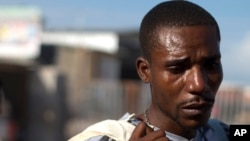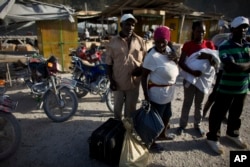The fight against the deportation of hundreds of thousands of Haitians living in the Dominican Republic has moved to the United States, where 600,000 Haitian immigrants and more than one million Dominicans live.
New York City Mayor Bill de Blasio, whose constituents include over 135,000 Haitians and 500,000 Dominicans, described the threat of deportation of Haitians by the Dominican government as illegal, immoral and racist.
“It is clearly an illegal act. It is an immoral act. It is a racist act by the Dominican government,” the mayor said. “And it’s happening because these people are black. And it cannot be accepted.”
His comments were supported by some but rejected by a number of other Dominicans who oppose the presence of Haitians in the Dominican Republic, especially after hundreds of thousands poured into the country after the 2010 earthquake on the island.
Both Haitians and Dominicans inhabit the island of Hispaniola, divided into two separate countries and often alienated by the issue of illegal immigration.
A 2013 Dominican citizenship law aims to cut off more than 200,000 Haitians who were born in the country to undocumented Haitians.
The decision leaves them without legal documentation and stateless since they have neither Haitian nor Dominican citizenship. They are now subject to deportation.
Although at first it was feared that the deportations would begin on Thursday, after the law went into effect, the Dominican government has now clarified that repatriations would be a slow and gradual process with "no sudden surprises."
On Monday in Washington, the Association of Haitian Professionals (AHP) called for a meeting followed by a march to the Embassy of the Dominican Republic to demand an end to the deportations and expulsions.
The AHP claims there is increasing anti-Haitian sentiment in the Dominican Republic resulting from violence against anyone with "Haitian facial features" - citing the example of the lynching of Henry "Tulile" Jean Claude in February.
"Tulile", a shoe-shiner, was found hanging in a Santiago public square on February 10, 2015, his hands and feet bound. The lynching, which was widely condemned, was blamed on a group of Dominican nationalists who had called for the deportation of Haitians living in their country and burned a Haitian flag on February 9.
VOA's Latin American service contributed to this report








